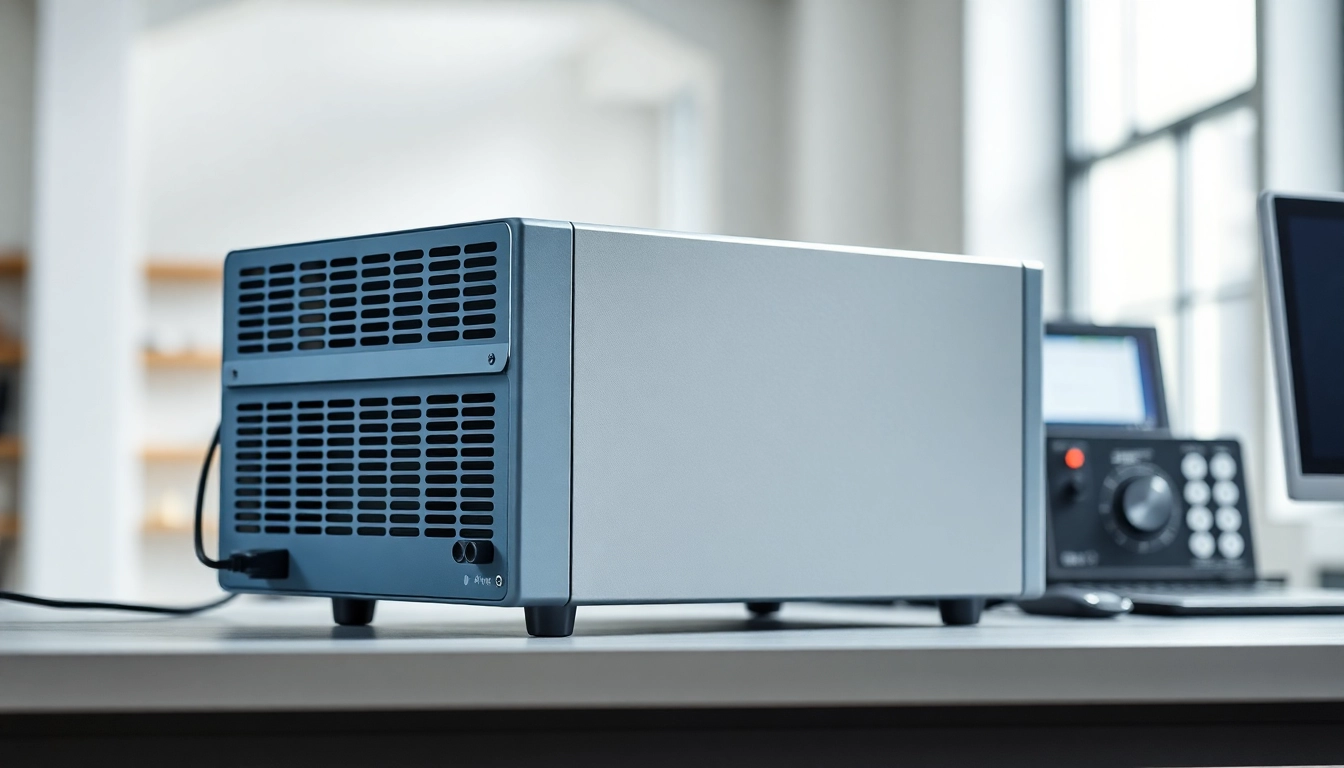Understanding Power Supplies
Power supplies are critical components in virtually every electronic system, ensuring that devices receive the appropriate voltage and current to function efficiently. In a world increasingly reliant on technology, understanding the intricacies of power supplies—along with their suppliers—has become essential for businesses and individuals alike. Power supply suppliers offer a wide range of products tailored to the specific needs of various applications.
What is a Power Supply?
A power supply is an electrical device that supplies electric energy to an electrical load. It converts electrical energy from a source—like a wall outlet—into usable power for electronic devices. The conversion can involve changing the voltage level, type of current (AC to DC, for example), and ensuring the supply meets specific operational requirements.
Power supplies come in various forms, including:
- AC to DC Converters: These devices convert alternating current (AC) from the mains into direct current (DC), which is commonly used in consumer electronics.
- DC to DC Converters: These convert one DC voltage level to another, allowing electronics to operate efficiently at different voltage requirements.
- Uninterruptible Power Supplies (UPS): These systems provide backup power during outages, ensuring critical devices remain operational.
The Role of a Power Supply Supplier
A power supply supplier plays a pivotal role in delivering the right components to meet diverse technological needs. They manage the supply chain, ensuring that manufacturers, distributors, and retailers can obtain high-quality power supplies tailored to their specific applications.
Key responsibilities of power supply suppliers include:
- Product Diversity: Offering a broad range of products from various manufacturers to meet different specifications and price points.
- Quality Assurance: Ensuring that supplied products meet regulatory and safety standards, leading to reliable performance in end applications.
- Technical Support: Providing expert advice to help customers select appropriate power supplies based on their specific requirements.
Types of Power Supplies Available
The market for power supplies has evolved significantly, leading to various types suited for different applications. Here are some of the most common types:
- Linear Power Supplies: These are known for their simplicity and low output noise, making them suitable for sensitive electronic equipment.
- Switching Power Supplies: More efficient than linear supplies, switching power supplies minimize energy loss, making them ideal for high-performance applications.
- Modular Power Supplies: These provide customizable configurations, allowing businesses to expand their systems easily as their power demands grow.
- Desktop Power Supplies: Commonly used for personal computers and consumer electronics, these supplies provide a crucial linkage between the mains electricity and the devices.
Choosing the Right Power Supply
Choosing the right power supply can be a complex decision influenced by various factors, including application, compatibility, and performance specifications. Understanding these aspects can help individuals and businesses make informed purchasing decisions.
Factors to Consider
When selecting a power supply, consider the following factors:
- Voltage and Current Requirements: Every device has specific voltage and current needs, which must be met for optimal performance.
- Efficiency Ratings: Look for products with high efficiency, as they consume less power and generate less heat, reducing operating costs and improving reliability.
- Size and Form Factor: Ensure that the power supply fits within the physical constraints of your device or installation space.
- Cooling Mechanisms: Power supplies generate heat; thus, effective cooling solutions are vital for maintaining reliability and preventing overheating.
Compatibility with Your Devices
Compatibility is an essential aspect of selecting a power supply. Ensure that the output voltage and current ratings of the power supply match the requirements of the device it powers. Additionally, consider the connectors and interface types, as mismatched connectors can lead to operational failures or damage to both the power supply and the device.
Understanding Specifications and Ratings
Power supplies come with a host of specifications that can seem overwhelming. Key specifications to pay attention to include:
- Input Voltage Range: Make sure your power supply can handle the voltage from your mains supply, typically 110V or 220V, depending on your location.
- Output Voltage and Current: Verify that these align with your device’s needs, as exceeding these levels can cause damage.
- Ripple Voltage: This specification indicates the fluctuating voltage at the output; lower ripple voltage is generally better as it leads to less noise.
- Temperature Range: Power supplies need to operate effectively within specific temperature ranges to ensure reliability.
Applications of Power Supplies
The application of power supplies spans a variety of industries and consumer products, making them a versatile component in the electronics ecosystem.
Industrial Uses
In industrial settings, power supplies are crucial for operating machinery, robotics, and automation systems. They provide the necessary energy to handle heavy loads and maintain consistent performance in environments that can fluctuate concerning temperature and voltage. Common industrial applications include:
- Manufacturing Equipment: Power supplies ensure that machines operate efficiently, providing stable performance and minimizing downtime.
- Automation Systems: Robotics in manufacturing require reliable power supplies for sensors and actuators to function correctly.
- HVAC Systems: Power supplies control components in heating, ventilation, and air conditioning systems, contributing to operational efficiency.
Consumer Electronics
Perhaps the most visible applications for power supplies are in consumer electronics. From smartphones to televisions, power supplies ensure that devices function correctly. The importance of reliable power supplies in this sector cannot be overstated, as consumers expect performance and safety. Examples include:
- Computers: Desktop and laptop computers depend on dependable power supplies for functionality and energy efficiency.
- Televisions: Power supplies in TVs convert AC to DC and regulate voltage levels, ensuring quality performance.
- Smart Devices: From smart home gadgets to wearable technology, a stable power supply is essential for functionality.
Medical and Telecommunication Power Solutions
Medical equipment must operate reliably for patient safety, making it essential that power supplies used in health care settings adhere to stringent standards.
Telecommunication equipment also relies on power supplies to maintain network reliability and performance. Key applications include:
- Life-Support Systems: Critical medical devices require uninterrupted power supplies to ensure their functionality.
- Diagnostic Equipment: Power supplies must deliver stable energy levels to sensitive diagnostic tools.
- Telecommunication Infrastructure: Reliable power supplies support cell towers and other critical infrastructure, ensuring consistent connectivity.
Top Power Supply Suppliers in the Market
With the expansive range of power supplies available, choosing the right supplier is crucial to ensure you receive high-quality and reliable components. This section delves into the leading suppliers in the market, their offerings, and how to evaluate them.
Leading Brands Compared
Several brands dominate the power supply market, each offering unique advantages. These brands include:
- Mean Well: Renowned for their reliability and efficiency, Mean Well supplies a vast array of power products for various applications.
- CUI Inc. Known for its wide selection of modular power supplies, CUI Inc. stands out in both performance and design.
- Artesyn: Recognized for high-quality industrial power supplies, Artesyn also offers robust solutions tailored for medical applications.
Benefits of Going with Known Suppliers
Selecting a reputable supplier can yield significant benefits, such as:
- Quality Assurance: Established suppliers often adhere to industry standards, ensuring product reliability.
- Warranty and Support: Well-known brands typically provide warranties and customer support, minimizing risks associated with product failures.
- Access to Innovation: Reputable suppliers are often at the forefront of technological advancements, providing the latest, most efficient products.
How to Identify a Reputable Supplier
Identifying a trustworthy power supply supplier involves careful research and consideration of various factors. Key points to evaluate include:
- Industry Reputation: Look for suppliers with a positive history and feedback from existing customers.
- Product Range: Suppliers offering a diverse range of products enable better compatibility with different applications.
- Technical Expertise: A knowledgeable sales and support team can offer significant insights and assistance in product selection.
Future Trends in Power Supply Technology
As technology advances, so too do the methodologies and designs behind power supplies. Keeping an eye on emerging trends can help businesses remain competitive and ensure they utilize the most efficient solutions available.
Advancements in Efficiency and Design
Future power supplies are expected to prioritize energy efficiency further, as industries increasingly focus on sustainability. Innovations in design—including improved thermal management, modularity, and compact form factors—are likely to enhance reliability while reducing costs.
Moreover, regulatory pressures and consumer demands for energy-efficient products are pushing manufacturers towards higher efficiency standards. This includes potential adoption of new technologies, such as GaN (Gallium Nitride) and SiC (Silicon Carbide), which promise to reduce energy loss during conversion.
Smart Power Supply Solutions
The rise of the Internet of Things (IoT) has paved the way for smart power supply solutions that can communicate and adapt to their environments. These smart devices can monitor performance, optimize energy usage, and even predict failures—enhancing both operational efficiency and reliability.
The Impact of Renewable Energy Sources
As the world moves towards renewable energy, power supplies must adapt to handle variables associated with sources such as solar and wind. This transition is leading to a surge in demand for specialized power supplies that can handle intermittent energy flows while maintaining system stability and efficiency.
In conclusion, understanding power supplies—along with selecting a reputable power supply supplier—is essential for ensuring optimal performance and reliability across various applications. Whether in industrial, consumer, or medical practices, the critical role that power supplies play cannot be underestimated as technology continues to evolve.


